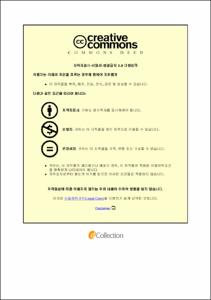유아 인성교육에 대한 유아 부모와 유아교사 그리고 예비유아교사 간의 인식 비교
- Alternative Title
- A Recognition Comparison among Children's Parents Teachers and Preliminary Teachers on Children's Character Education
- Abstract
- This study is intended to find out the recognition of children's parents, teachers and preliminary teachers who have the most influence on children's humanistic education, to develop effective and systemic Character Education programs that help children form right personalities, and to seek for the right direction of Character Education.
The subjects of this study were 148 parents, 127 teachers and 209 preliminary teachers who live in Busan. The data was collected from a survey on the 484 persons.
The collected data was analyzed through SPSS 23.0 program for the research question of this study, which is the recognition of children's parents, teachers and preliminary teachers on Character Education. Regarding multiple-choice questions of the questionnaire responses, frequency and percentage were analyzed for each question, which were performed in frequency and percentage questions to find out the difference of each variable.
The result of comparing the recognition of parents, teachers and preliminary teachers about children's Character Education in the above method is as followed.
First, the interest rate on children's Character Education was high in parents, teachers and preliminary teachers. The biggest reason for emphasizing personality was individual selfishness, and for the recognition on the purpose of Character Education, the most parents chose the establishment of values, and teachers and preliminary teachers mostly chose sociability education.
Second, for the contents of desirable Character Education, all the parties chose courtesy education the most. Regarding the recognition on necessary education contents for Character Education, each parents, teachers and preliminary teachers chose problematic behavior instruction program, courtesy education program and life guidance program respectively.
Third, regarding the recognition of Character Education methods, all the three parties chose instructing the whole areas the most. Regarding the recognition of areas that Character Education should emphasize, most of them chose basic life habit, and for the recognition of factors that have the most influence on Character Education, they chose parents' values the most.
Fourth, regarding the recognition about major virtues of personality, honesty was chosen by the most parents followed by manners, responsibility, justice and self-control. The most teachers chose manners followed by honesty, responsibility, cooperation, truth and self-control. The most preliminary teachers chose manners followed by responsibility, honesty, respect for others and self-control.
Fifth, regarding the necessity of training for children's Character Education, all three parties gave positive answers.
Sixth, there was no significant difference in the understanding level of goals that Character Education pursues, the understanding level on the concept and details of Character Education and whether Character Education is helpful to children.
based on the result of this study, There is a significant difference on the recognition of children's Character Education among children's parents, teachers and preliminary teachers, and it is necessary to develop parent education for children's parents who have the most influence on children's personalities, and children Character Education program, textbooks and instruction methods for teachers and preliminary teachers to boost children's Character Education.
- Issued Date
- 2018
- Awarded Date
- 2018. 2
- Type
- Dissertation
- Publisher
- 부경대학교
- Alternative Author(s)
- kim kyoung lim
- Affiliation
- 부경대학교 교육대학원
- Department
- 교육대학원 유아교육전공
- Advisor
- 이희영
- Table Of Contents
- Ⅰ. 서론 1
1. 연구의 필요성 및 목적 1
2. 연구문제 6
3. 용어의 정리 6
Ⅱ. 이론적 배경 8
1. 인성 개념 8
가. 인성의 정의 및 개념 8
나. 인성교육의 개념 및 중요성 11
2. 유아 인성교육 13
가. 유아 인성교육의 개념 13
(1) 인성교육이란 13
(2) 유아 인성교유의 중요성 및 필요성 13
나. 유아인성교육에 대한 인식 15
(1) 유아 부모의 인성교육에 대한 인식 15
(2) 유아 교사의 인성교유에 대한 인식 15
(3) 예비 유아교사의 인성교육에 대한 인식 16
(4) 유아 인성교육에 대한 부모·교사·예비 유아교사의 인식 비교 17
Ⅲ. 연구방법 19
1. 연구대상 19
2. 연구도구 24
3. 연구절차 25
4. 자료분석 26
Ⅳ. 연구결과 및 해석 27
1. 유아 인성교육에 대한 부모의 인식 27
2. 유아 인성교육에 대한 교사의 인식 40
3. 유아 인성교육에 대한 예비교사의 인식 51
4. 유아 인성교육에 대한 부모·교사·예비교사의 인식비교 63
Ⅴ. 논의 및 결론 78
1. 논의 78
2. 결론 및 제언 82
Ⅵ. 참고문헌 89
부록 92
- Degree
- Master
- Files in This Item:
-
-
Download
 유아 인성교육에 대한 유아 부모와 유아교사 그리고 예비유아교사 간의 인식 비교.pdf
기타 데이터 / 702.89 kB / Adobe PDF
유아 인성교육에 대한 유아 부모와 유아교사 그리고 예비유아교사 간의 인식 비교.pdf
기타 데이터 / 702.89 kB / Adobe PDF
-
Items in Repository are protected by copyright, with all rights reserved, unless otherwise indicated.